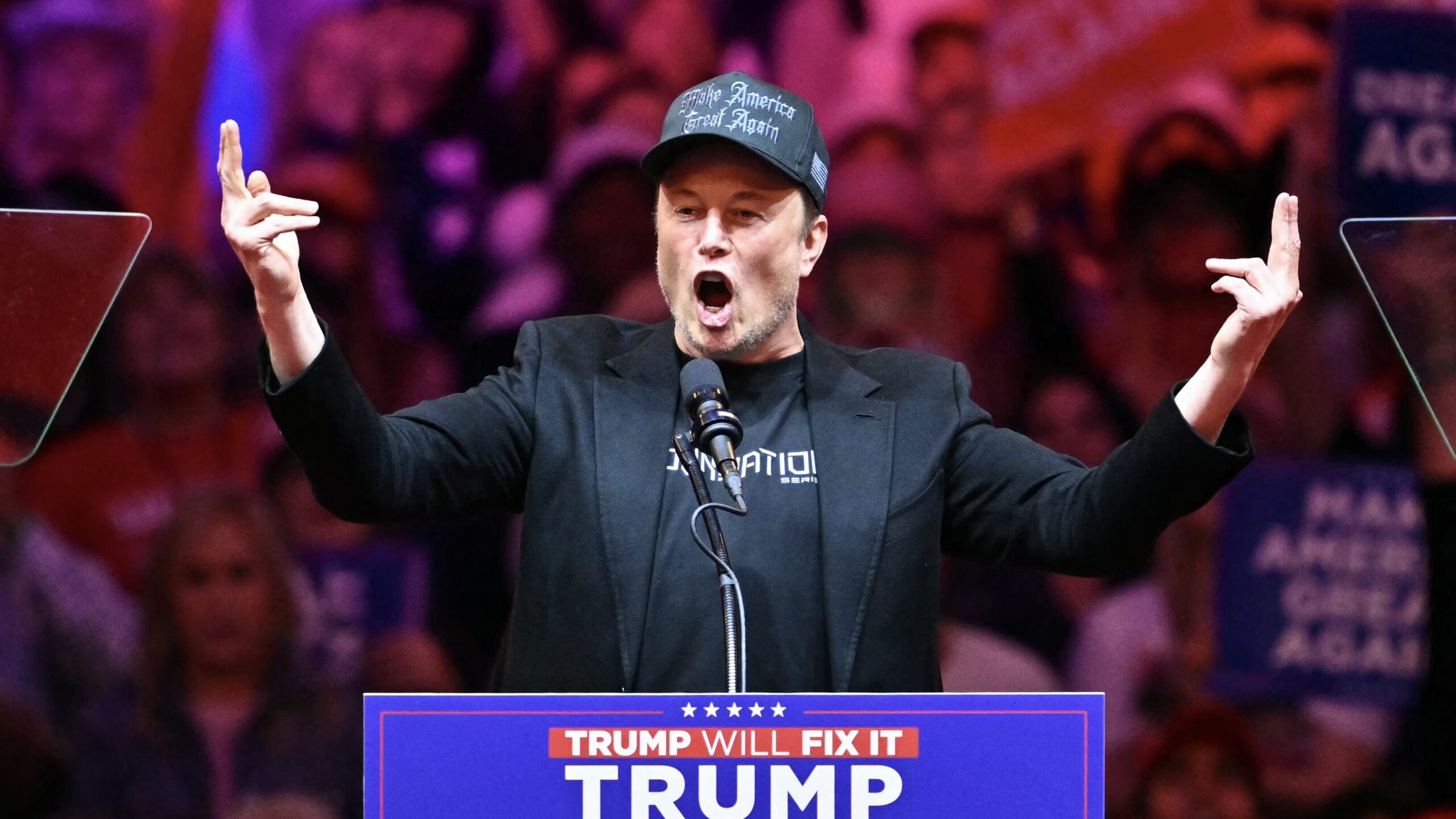Here’s what Trump has in store for immigration
Will immediately crack down on border security and interior immigration enforcement upon his return to office, immigration experts and other allies of the upcoming administration say


![]()

President-elect Donald Trump will immediately crack down on border security and interior immigration enforcement upon his return to office, immigration experts and other allies of the upcoming administration say.
Trump decisively won re-election to the White House, having secured 295 electoral votes and drawing more than 73 million supporters to the voting booth on Election Day, per the latest results as of Friday. The victory brings into sharper focus his campaign platform, which includes incredibly hawkish border security proposals.
The president-elect, who already established himself as a stalwart on border enforcement during his first term in office, made a slate of campaign promises on border security over the past year, such as completing the U.S.-Mexico border wall, reviving the Remain in Mexico program, bringing back the travel ban and hiring more Border Patrol agents.
Trump also introduced a number of more novel pledges while on the campaign trail, such as a vow to conduct the “largest deportation program in American history” and a plan to end birthright citizenship for those born on American soil by illegal migrant parents.
Trump’s rhetoric and past reputation may have already helped mitigate the immigration crisis at the U.S.-Mexico border. Upon hearing that he was elected to a second term, numerous migrants in southern Mexico expressed hopelessness and opted to leave a U.S.-bound caravan they were traveling in, with a Mexican official noting that the incoming caravan of roughly 3,000 migrants shrunk by roughly half its size after Trump declared victory.
Immigration experts who spoke with the Daily Caller News Foundation, while cautioning that anti-borders groups will fight the upcoming administration tooth and nail, said the American people can certainly expect a return to the tough immigration measures that were seen in Trump’s first term.
“America can expect the new Trump administration to do what the prior Trump Administration did: To apply the Immigration and Nationality Act, as written by Congress. And to restore the rule of law, both to the Southern border and to the legal immigration system,” said Matt O’Brien, investigations director at the Immigration Reform Law Institute (IRLI), a conservative legal group in Washington, D.C., that pushes for stricter immigration policies.
“The overall goal will be protecting the public safety and national security of the United States; as well as protecting migrants — especially vulnerable women and children — from exploitation by smugglers and traffickers,” O’Brien continued. “The only thing that needs to be done to ‘fix’ the immigration system is to use the laws on the books as Congress intended. And President Trump will do that.”
As for laws set by Congress, several lawmakers in the House and Senate told the DCNF that they are ready and waiting with their own legislation once Trump re-enters the Oval Office.
Texas GOP Sen. Ted Cruz, for example, said he looks forward to passing his Justice for Jocelyn Act in the next Congress, an homage to a 12-year-old Houston girl who was allegedly sexually assaulted and murdered in June by two illegal migrants. The bill would mandate the Department of Homeland Security (DHS) to “exhaust all reasonable efforts” to keep an illegal migrant in custody before releasing them into the interior of the country, according to the legislation.
Should an illegal migrant be released, however, the legislation would call for continuous GPS monitoring until their removal from the U.S. or the completion of their immigration proceedings. Texas GOP Rep. Troy Nehls has sponsored the same legislation on the House side.
“In a second Trump administration, the House Committee on Homeland Security will do everything possible to help the United States return to an era of secure borders and robust interior enforcement,” GOP Rep. Mark Green, who serves as chairman of the House Homeland Security Committee, stated to the DCNF. “Ending the Biden-Harris border crisis will require two things — policy changes to end the flow of inadmissible aliens into our country, and more funding for interior enforcement to demonstrate that there are consequences to entering illegally.”
The election results so far show Congress will likely be in a position to support the upcoming Trump administration’s immigration agenda. The GOP secured control of the Senate after flipping four different Senate seats, and while there is no definitive winner of the House majority yet, Republicans appear to have a slight edge as votes continue to trickle in.idential nominee U.S. Sen. JD Vance (R-OH) tours the U.S. Border Wall on August 01, 2024 in Montezuma Pass, Arizona. (Photo by Anna Moneymaker/Getty Images)
While it’ up for debate on exactly what bills Trump ultimately signs into law or executive orders he takes, it’s certain that the incoming president will face courtroom fights over whatever he decides to do.
“Any action that President Trump would take, someone is going to sue,” Eric Ruark, research director for NumbersUSA, stated to the DCNF about the expected barrage of court challenges the Trump administration will receive once it embarks on its immigration agenda. “It depends on whether you find a judge that will rule against him, and it may take a long time for these things to play out.”
The American Civil Liberties Union (ACLU) filed more than 400 legal actions against Trump and his administration since 2016, according to their count, and these lawsuits targeted a vast number of his first term’s immigration priorities. The massive liberal organization, and others like it, say they’re ready to battle the Republican again now that he will be returning to office.
Even President Joe Biden, who entered office on a pledge to undo Trump’s hawkish border policies, was sued by immigrant rights groups when he finally attempted to end the illegal immigration crisis by issuing an executive order in June that largely shut down crossings at the southern border.
The Biden-Harris administration oversaw record-levels of border encounters during its time in office, with illegal border crossings in fiscal year 2023 and fiscal year 2024 being the worst in history, according to CBP data. The border crisis began after the administration in its first year took nearly 90 executive actions that specifically targeted Trump’s first-term immigration policies.
While some of Trump’s more ambitious goals will take time and likely endure legal challenges, there are swift administrative actions that the president-elect will likely take on day one of his administration, Ruark noted.
“Ending the parole abuse,” he said, referring to the CHNV program and others like it that have paroled into the U.S. more than half a million foreign nationals during the Biden administration. Around 530,000 Cubans, Haitians, Nicaraguans and Venezuelans have been flown into the country under the CHNV initiative.
“On day one I think he would end those parole programs,” Ruark said. “And people who come in under parole were being allowed — and I guess they still are — to sponsor other people to come in, which is a complete violation of the law. So that is something Trump can end on day one.”
He also listed the termination of the CBP One app — which has allowed roughly one million foreign nationals to schedule appointments at ports of entry since it was first rolled out — and the withholding of federal funds from sanctuary cities as other unilateral actions that Trump will likely embark on immediately.
A successful immigration agenda will also hinge in large part on cooperation from Mexico, which stands in between the U.S. southern border and the countless illegal migrants who wish to cross it every year. The former Mexican president, Andres Manuel Lopez Obrador, ramped up his government’s crackdown on U.S.-bound illegal migration, giving relief to Biden as he dealt with historic border encounters.
Claudia Sheinbaum, Lopez Obrador’s successor, took office in October, but questions remain on how the leftist Mexican leader will get along with Trump. Sheinbaum on Thursday confirmed that she had a “cordial” phone call with the president-elect following his victory, but did not go into further detail on what was discussed. A spokesperson for Trump’s campaign declined to comment on what was said during the phone call when reached by the DCNF.
Regardless of legal pushback by liberal organizations or a lack of cooperation from his Mexican counterparts, immigration experts do anticipate Trump to be even tougher on immigration than he was in his first term.
“I would be surprised and very disappointed if not,” Ruark said.
Content created by The Daily Caller News Foundation is available without charge to any eligible news publisher that can provide a large audience. For licensing opportunities of our original content, please contact [email protected].
SUPPORT TRUTHFUL JOURNALISM. MAKE A DONATION TO THE NONPROFIT WND NEWS CENTER. THANK YOU!
What's Your Reaction?

































































































